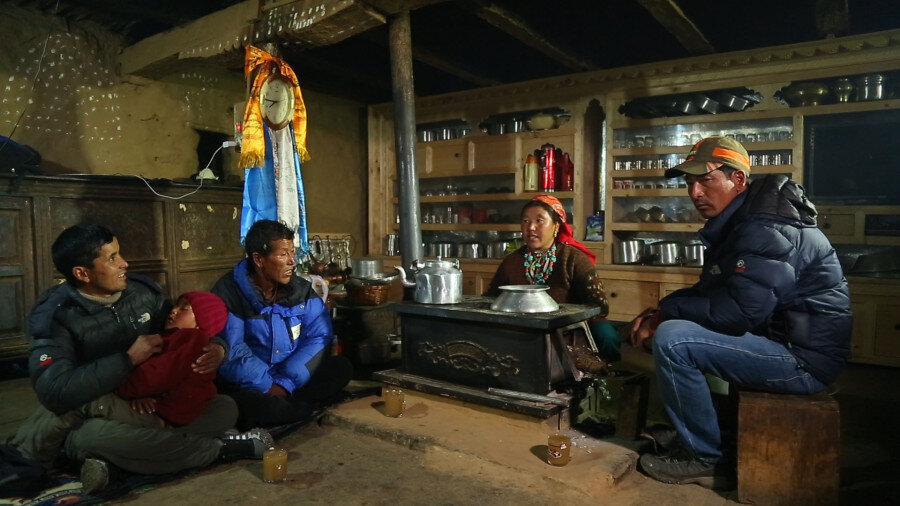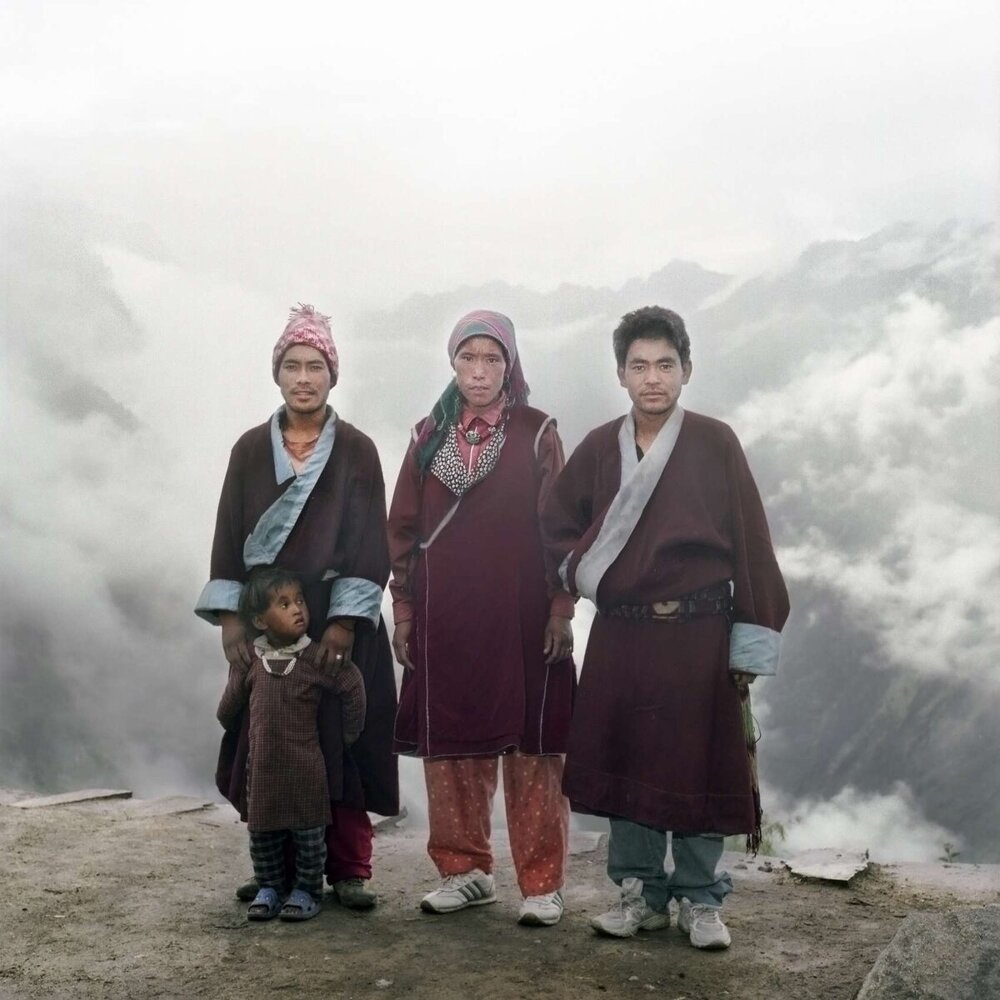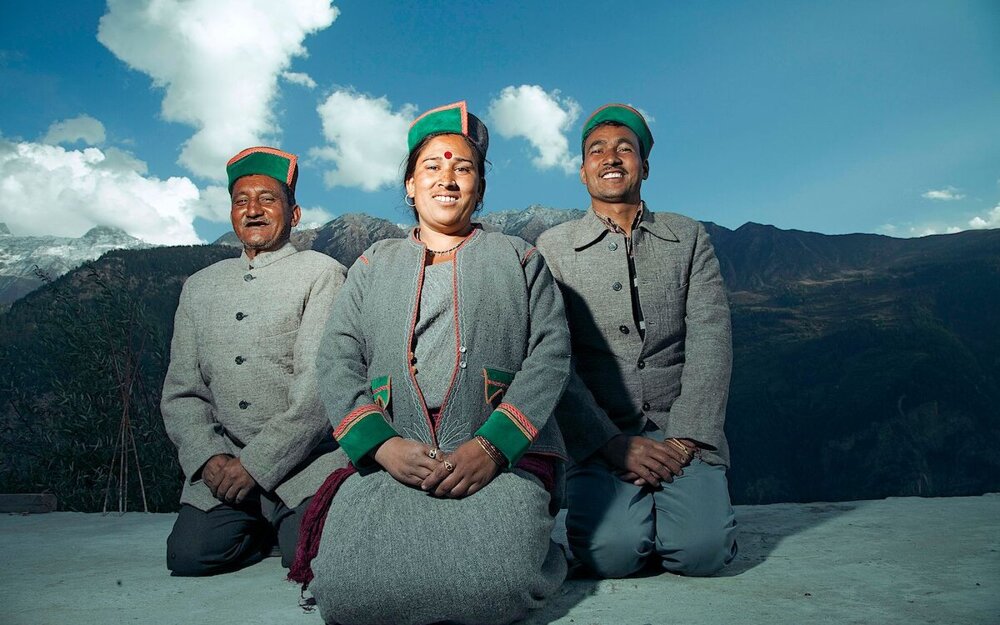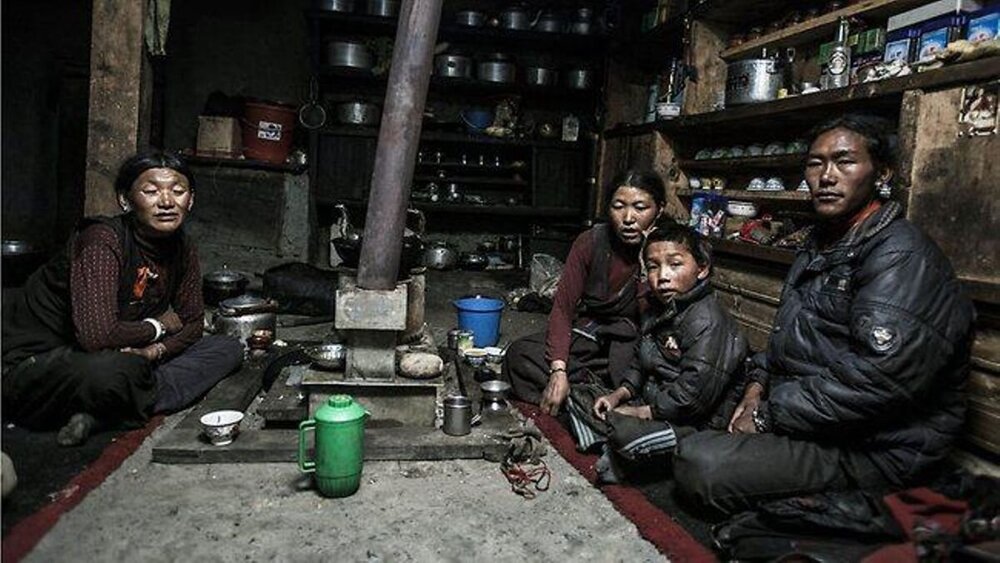Polyandry in Nepal: how men share one wife (4 photos)
Polyandry was found in completely different cultures around the world, but they had something in common: they all existed in difficult conditions, characterized by a shortage of land. It was a simple and reliable way to reduce the birth rate in an environment where resources were limited. 
Remember the old fairy tale: the older brother got a mill, the middle one got a donkey, and the younger one got a kick in the cat's soft spot. Or at the same time in the same place, when one son receives a castle, the second makes a spiritual career, the third becomes a knight errant. But what to do if there is simply no opportunity to do something else?
In this case, you have two options: either give everything to one heir, usually the eldest, and kick the rest out; or divide the goods between the sons. But, as we have already said, the economy in some regions is too weak for a person to find employment in another field. And the land, which is the economic basis, cannot be divided endlessly. After some time, usually very early, each owner will not have enough of it to support life.
The solution is polyandry, which is still practiced in some regions of Tibet, Bhutan, Northern India and Nepal - today we will talk about the latter. These are all highland countries and regions characterized by a small amount of arable land.
Basically, this custom exists among the Sherpas and Nyinba - peoples who live in places that are considered extreme even by local standards. The former are known as skilled rock climbers and act as guides and participants in all mountaineering expeditions. The tradition is widely practiced only in remote areas, but there are also adherents in cities. 
The point is: in order not to divide the land between heirs, parents simply find a common wife for all their sons. This is how “fraternal polyandry” arises - depending on the number of sons or husbands, one woman can have two, three or four, but the first is most common.
Here's how it works: one man can have many children from different women, and one woman from different men can have no more than one per year, and usually less. In this case, wealth remains in one family, and more hands work on one plot.
Before you think that this is some kind of feminist paradise, it must be said that the wife must groom each of the brothers equally, satisfy them physically strictly in turn, and that she will have a child from each of them. At the same time, even in conservative societies, a woman entering into marriage has a certain right to choose. But with polyandry there is no such right: young ladies in Tibet choose only their older husband, and may not even see the rest. But when they reach a certain age, they automatically become her husbands. By the way, it is often practiced that their father also has the right to intimacy.
Thus, the Nepalese found a way to survive without sacrificing their younger sons. This curbs population growth and ensures that all brothers maintain kinship ties. That the family will not be divided, but will survive for several generations. 
Polyandry in high mountain regions is flexible and adaptable. Who knows how widespread it is in Nepal - this is not even a third, but a fourth world country. But in Tibet, a survey was conducted in the late 1980s that found that 13% of locals grew up in polyandrous families. Although this is officially prohibited in both Tibet and Nepal.
That is, a woman can have one husband if he has no brothers, or she can have five if he has them. To remove “extra” men, the institute of Buddhist monasticism is used. And in principle, there are no “extra” women, because for biological reasons more boys are born than girls. In any case, polygamy exists here too, so in any case you can find an unnecessary lady.
When concluding such unions, the girl is selected so that she is younger than her elder brother, but older than her younger brothers. According to tradition, the eldest son enjoys the greatest power in a polyandrous family, who can sometimes delegate unpleasant work to relatives and at the same time monopolize communication with his wife.
On the one hand, Nepalese and other Tibetans are accustomed to the fact that their eldest is a king and god, but on the other hand, different things happen. In any case, divorce in this society is very simple - the dissatisfied can always leave. But women usually strive to maintain such a marriage in order to ensure their wealth.
It is considered necessary that a lady should give birth to a child for each husband. They inherit common property and a common surname, but each of their mother's husbands is called "father." However, in some regions the addresses “dad” and “uncle” are accepted. True, a woman may not know the whole truth on this score or may lie in order to avoid conflicts. 
Marriage to men who are not related is rare. This does not provide any advantage in cultivating the land; There are hardly any friends close enough to share one woman; and it will be very difficult for the children born to find a mate in the future. If all the husbands are from the same family, then their children will be siblings or cousins - in this case it is clear that they are relatives, whom they can marry and who they cannot marry. If they have different fathers, but the same mother, it will be difficult for them to do this, since in Nepalese society there are strict rules regarding marriages with relatives.




























